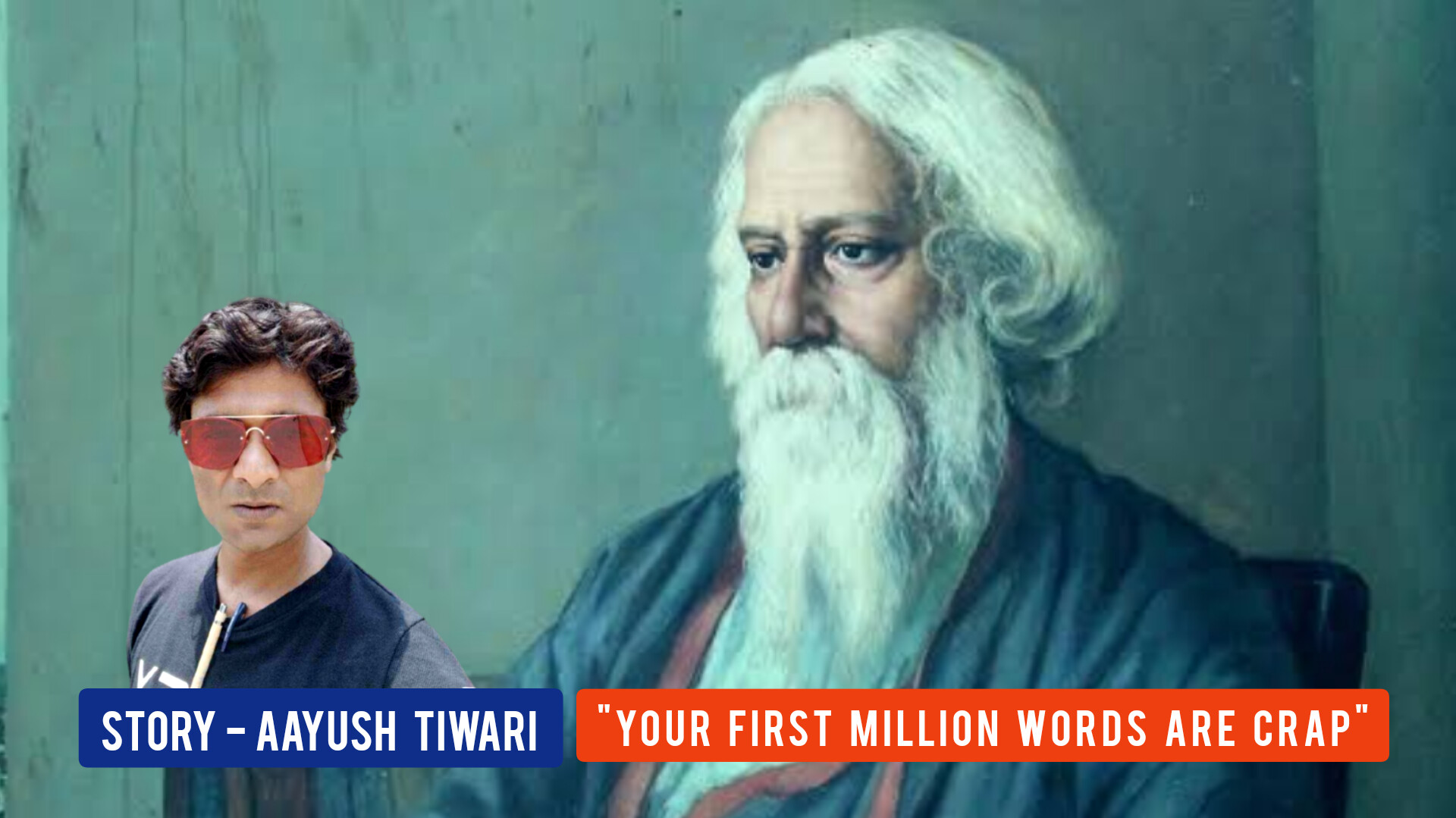
The ” richest writer” and see the heading what Orson Scott has to say! Breaking the ice with an example we can relate to – “GEETANJALI” by Rabindra Nath Tagore and it kept decaying in Kolkata University, till some angel in disguise was awed and sent it to the place where it deserved to be. What happened henceforth?Tagore got the noble prize.
Yes, every aspiring writer dreams of penning a masterpiece that captivates readers and secures their place in literary history. However, the harsh reality is that achieving greatness in writing often requires perseverance, dedication, and a willingness to accept that your first attempts may not be stellar. The adage, “Your first million words are crap,” popularized by the renowned author Orson Scott Card, serves as a powerful reminder that greatness is a journey, and mastery comes with practice.
Orson Scott Card, the creator of the beloved science fiction novel Ender’s Game, encapsulated this wisdom in a speech he delivered in 1996. He bluntly stated, “You are not good enough to write your first novel yet.” While these words may seem discouraging at first, they hold within them a profound understanding of the creative process and the commitment necessary to excel.
Card’s assertion is not an attempt to undermine the potential of aspiring writers. Instead, it is a call to action, urging individuals to accept that mastering the art of writing involves countless hours of experimenting, failing, and refining one’s craft. The sentiment behind the famous quote is that writers must embrace their initial failures as valuable learning experiences that bring them one step closer to greatness.
The journey to becoming a skilled writer is akin to honing any other skill or talent. It requires persistence, patience, and the willingness to push through the initial struggles. In those early stages, writers may produce stories or articles that are riddled with clichés, inconsistencies, or underdeveloped characters. But rather than being disheartened, writers should remember that each of these “failed” attempts brings them one step closer to discovering their unique voice.
Consider renowned authors like J.K. Rowling or Stephen King, both of whom experienced countless rejections and setbacks before finding success. Both authors admit that their early works were not impressive or refined; they acknowledge the necessity of persevering through initial failures to reach their eventual breakthroughs.
The concept that the first million words are “crap” is a reminder of the importance of practice. Just as a musician hones their skills through hours of repetitious exercises, writers must be willing to pour their hearts and minds onto paper relentlessly. Each word written, no matter its perceived quality, contributes to developing the writer’s voice, style, and storytelling abilities.
Furthermore, Card’s famous quote encourages writers to embrace the iterative process of revision. It is through rewriting and refining that writers transform their initial thoughts into captivating prose. This rewriting process allows writers to distill their ideas and improve their storytelling techniques. The path to mastery is not linear but rather cyclical, and it is in the reworking of their words that writers truly grow.
While it may be disheartening to think that your first million words are destined for mediocrity, Orson Scott Card’s sentiment actually instills hope. It serves as a reminder that every writer starts somewhere, and even the most celebrated authors had their fair share of doubts and failures. By accepting that initial attempts may be far from perfect, writers are freed from the fear of failure and can instead focus on their journey of growth.
Ultimately, aspiring writers should embrace Card’s words as a powerful motivator. They remind us that greatness can only be achieved through perseverance, dedication, and a profound understanding that mastery is a process—not an instantaneous revelation. By surrendering our ego to the notion that our first million words may be mediocre, we become more focused on the pursuit of improvement and inch closer to the possibility of crafting our own literary masterpiece.





